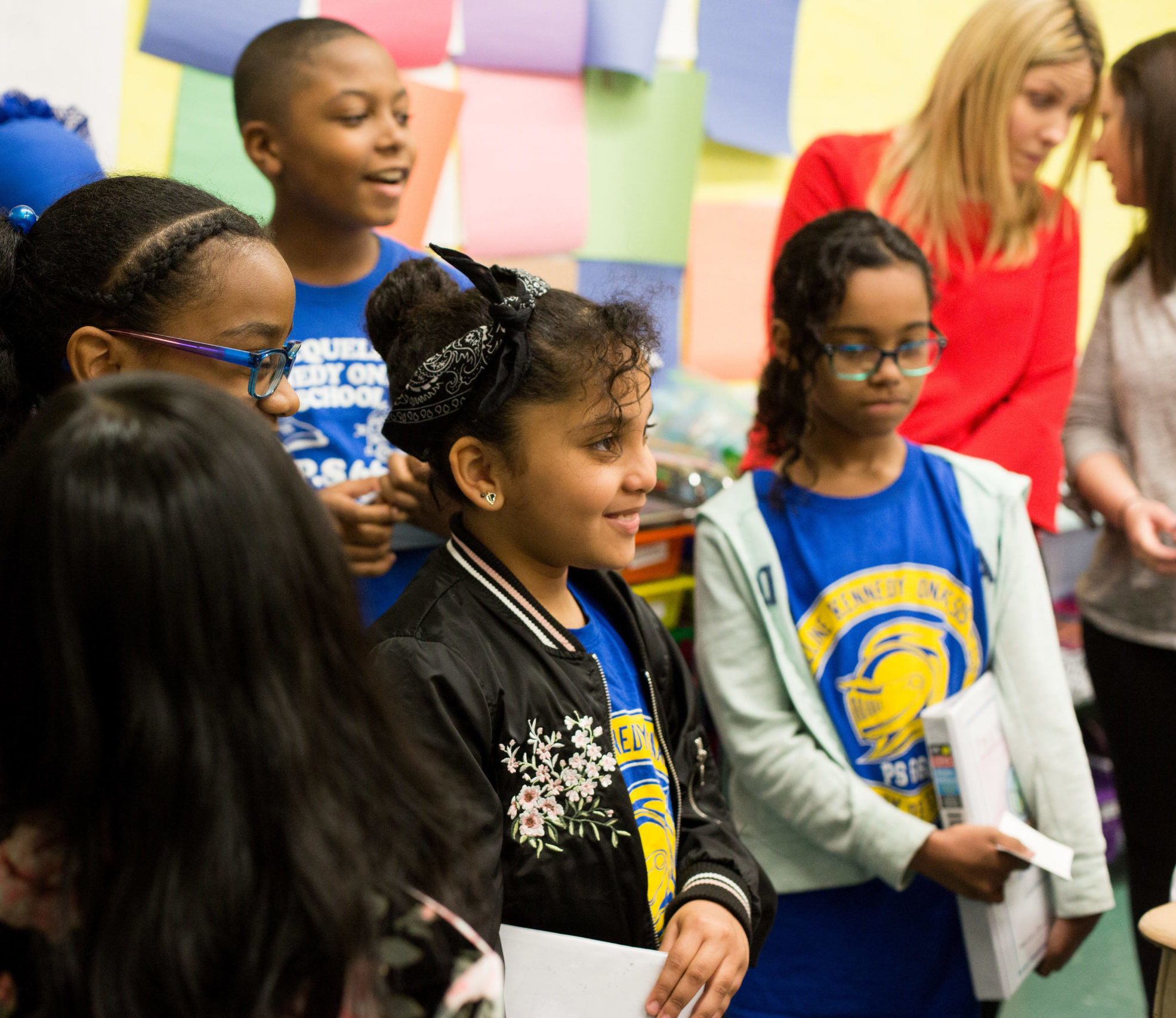Researchers from Teachers College at Columbia University have conducted two independent evaluations of NaliniKIDS
–
Researchers from Teachers College at Columbia University have conducted two independent evaluations of NaliniKIDS
–
Researchers from Teachers College at Columbia University have conducted two independent evaluations of NaliniKIDS
–
Researchers from Teachers College at Columbia University have conducted two independent evaluations of NaliniKIDS
–
Researchers from Teachers College at Columbia University have conducted two independent evaluations of NaliniKIDS
–
A study conducted in 2016–17 found that consistent and broad engagement in NaliniKIDS may improve empathy among students, peer relations, and opportunities for inclusion.
The second study, conducted in 2018–19, found that students reported a significant increase in prosocial behaviors such as being helpful, sharing, caring, being kind.
A study conducted in 2016–17 found that consistent and broad engagement in NaliniKIDS may improve empathy among students, peer relations, and opportunities for inclusion.
The second study, conducted in 2018–19, found that students reported a significant increase in prosocial behaviors such as being helpful, sharing, caring, being kind.
A study conducted in 2016–17 found that consistent and broad engagement in NaliniKIDS may improve empathy among students, peer relations, and opportunities for inclusion.
The second study, conducted in 2018–19, found that students reported a significant increase in prosocial behaviors such as being helpful, sharing, caring, being kind.
A study conducted in 2016–17 found that consistent and broad engagement in NaliniKIDS may improve empathy among students, peer relations, and opportunities for inclusion.
The second study, conducted in 2018–19, found that students reported a significant increase in prosocial behaviors such as being helpful, sharing, caring, being kind.
A study conducted in 2016–17 found that consistent and broad engagement in NaliniKIDS may improve empathy among students, peer relations, and opportunities for inclusion.
The second study, conducted in 2018–19, found that students reported a significant increase in prosocial behaviors such as being helpful, sharing, caring, being kind.

“By expanding access to the NaliniKIDS program we would be contributing to improved school climate, youth well-being, academic engagement, and improved health outcomes among our children.”
“By expanding access to the NaliniKIDS program we would be contributing to improved school climate, youth well-being, academic engagement, and improved health outcomes among our children.”
“By expanding access to the NaliniKIDS program we would be contributing to improved school climate, youth well-being, academic engagement, and improved health outcomes among our children.”
“By expanding access to the NaliniKIDS program we would be contributing to improved school climate, youth well-being, academic engagement, and improved health outcomes among our children.”
–
Sonali Rajan, Ed.D., M.S.
Department of Health and Behavior Studies, Teachers College, Columbia University
–
Sonali Rajan, Ed.D., M.S.
Department of Health and Behavior Studies, Teachers College, Columbia University
–
Sonali Rajan, Ed.D., M.S.
Department of Health and Behavior Studies, Teachers College, Columbia University
INTERESTING RESEARCH FINDINGS
–
INTERESTING RESEARCH FINDINGS
–
INTERESTING RESEARCH FINDINGS
–
INTERESTING RESEARCH FINDINGS
–
- Teachers reported a significant decrease in students’ hyperactivity when they used Nalini programs in their classroom.
- NaliniKIDS was found to be accessible and enormously meaningful to members of the school’s community.
- Participating in NaliniKIDS over multiple years increased its impact.
- Teachers reported a significant decrease in students’ hyperactivity when they used Nalini programs in their classroom.
- NaliniKIDS was found to be accessible and enormously meaningful to members of the school’s community.
- Participating in NaliniKIDS over multiple years increased its impact.
- Teachers reported a significant decrease in students’ hyperactivity when they used Nalini programs in their classroom.
- NaliniKIDS was found to be accessible and enormously meaningful to members of the school’s community.
- Participating in NaliniKIDS over multiple years increased its impact.
- Teachers reported a significant decrease in students’ hyperactivity when they used Nalini programs in their classroom.
- NaliniKIDS was found to be accessible and enormously meaningful to members of the school’s community.
- Participating in NaliniKIDS over multiple years increased its impact.
- Teachers reported a significant decrease in students’ hyperactivity when they used Nalini programs in their classroom.
- NaliniKIDS was found to be accessible and enormously meaningful to members of the school’s community.
- Participating in NaliniKIDS over multiple years increased its impact.
Stay involved with what’s happening at NaliniKIDS
Contact us
Contact us
NaliniKIDS is a 501(c)(3) nonprofit. | Privacy policy